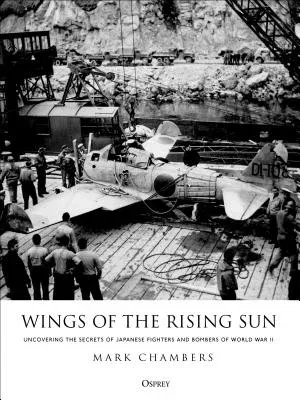Mark Chambers
(Author)Wings of the Rising Sun: Uncovering the Secrets of Japanese Fighters and Bombers of World War IIHardcover, 20 November 2018

Qty
1
Turbo
Ships in 2 - 3 days
Only 1 left
Free Delivery
Cash on Delivery
15 Days
Free Returns
Secure Checkout

Print Length
336 pages
Language
English
Publisher
Osprey Publishing (UK)
Date Published
20 Nov 2018
ISBN-10
1472823737
ISBN-13
9781472823731
Description
Product Details
Author:
Book Format:
Hardcover
Country of Origin:
US
Date Published:
20 November 2018
Dimensions:
24.89 x
19.81 x
3.3 cm
ISBN-10:
1472823737
ISBN-13:
9781472823731
Language:
English
Location:
New York
Pages:
336
Publisher:
Weight:
1315.42 gm